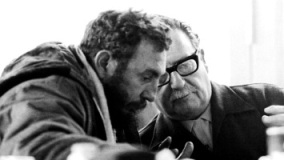Then Weisbrot described for the British newspaper The Guardian, the experience in Venezuela, in contrast to his previous perception, formed as a result of exposure to broadcast media by English speakers.
Mark tells that images shape reality, which gives television, videos and even pictures a power that can undermine deeper into the minds of people. “I thought that I too was immune to repetitive portraits of Venezuela as a failed state amid a popular revolt,” he said.
The author admits not being “prepared for what I saw in Caracas this month (… ) I also had been deceived by the media imagery.”
In his article the journalist notes that mainstream media have reported that the poor in Venezuela have not joined the protests of the opposition right, ” but this is an understatement: it is not only the poor refrain – in Caracas, are almost all but a few areas such as Altamira, where small groups of protesters get in night battles with security forces, throwing stones and firebombs. “
In this regard various surveys and data confirm that the protests are largely rejected in Venezuela. One might point out that 87 percent of the population opposes them. “The surveys also suggest that most Venezuelans see these disturbances as what they are: an attempt to overthrow an elected government,” says the author.
Also in the text brought to light by The Guardian the internal politics of the position of Secretary of State John Kerry criticizes and says it’s pretty simple. “On one hand, you have the Cuban -American lobby to the right of Florida and his neoconservative allies shouting for the ouster. To the left of the extreme right, well, nothing. In this White House cares little Latin America and no electoral consequences for doing that most governments in the hemisphere bother with Washington. “
Maybe Kerry thinks Venezuela´s economy will collapse and that carry some of the non-rich Venezuelans to the streets against the government. But the economic situation actually is stabilizing – the monthly inflation fell in February and the dollar on the parallel market has fallen sharply on news that the government is introducing a new rate based on the market.
It should be noted that Venezuela’s sovereign bonds had a yield of 11.5 % since February 11.
Finally , Weisbrot believes that the most pressing problem of the opposition is that the next election will be within a year and a half and by that time , economic shortages and inflation ” have increased in the last 15 months will have been relieved” .
In such a scenario, the opposition may lose the elections, and each attempt has failed at the polls in the last 15 years. “But his present insurrectionary strategy is not helping his own cause: it seems that has divided and united opposition to Chavez.”
This was what he told U.S. economist Mark Weisbrot in The Guardian. Such
experience is to not be swayed by what the media tell you.



